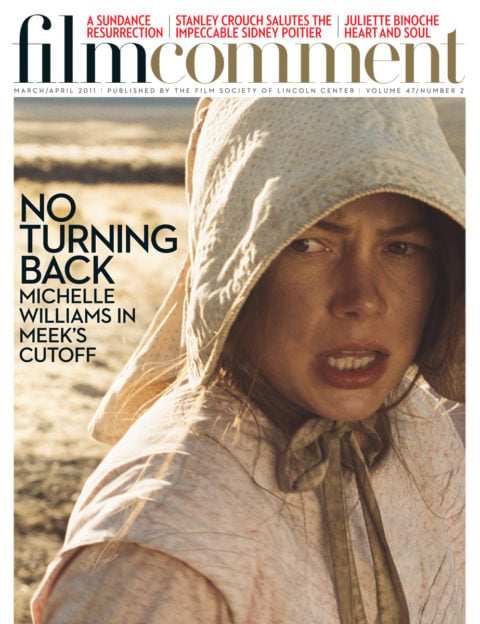
Madame de La Fayette, writing anonymously in the 17th century, equidistant in time between Cervantes and Defoe, helped originate the novel form, bringing to its development not only a woman’s point of view but probing psychological acuity. Celebrated, more in France than here, for La Princesse de Clèves, she also wrote, in 1662, a short story called “La Princesse de Montpensier”—a roundelay of marital and sexual cross-purposes set against the 16th-century conflict between Catholics and Huguenots, so plot-driven and devoid of descriptions (hardly an adjective interrupts the action) that it reads quite like a film treatment. Bertrand Tavernier has expanded it into a sly, alluring, and at times unsettling examination of the parallels between violence in the public and private spheres, in a society where a young woman, great in beauty and wealth, may be traded as chattel and pursued as the doe in a competitive hunt. He has made an intimate epic, as coolly calculated as a chess match, in which blood on the battlefield and on the bedsheets (after a public wedding consummation) is the fuel of economic and political power and masculine pride.
The St. Bartholomew’s Day Massacre has a place in film history as a component of D.W. Griffith’s Intolerance, yet has been ignored by filmmakers since 1916. In The Princess of Montpensier, it is relegated to the background, a monstrous intrusion in a climactic scene and the payoff of Catherine de Medici’s palace machinations. Yet the film, like the story it faithfully follows (to the point of including La Fayette’s dialogue) is concerned with intrigue involving the princess, Marie (radiantly, warily played by Mélanie Thierry) and her four suitors: her husband, Philippe (Grégoire Leprince-Ringuet); his mentor and her tutor, Chabannes (Lambert Wilson); her childhood love, Guise (Gaspard Ulliel); and Anjou, the future Henry III (Raphael Personnaz). Tavernier and Jean Cosmos, revising an earlier script byFrançois-Olivier Rousseau, have proportioned the roles of the male characters more equally than in the original story, choreographing a more intricate and dramatically satisfying rivalry. They also ultimately allow Marie a measure of empowering independence, though it requires her “withdrawal” from love—much as the faithful Chabannes had attempted to withdraw from war.
The elaboration of Chabannes—who disappears from patches of the original story (inexplicably ill), serving at times as a deus ex machina dupe—into the film’s moral center is perhaps Tavernier’s most ingenious conceit. La Fayette doesn’t explain why he abandons the Huguenots for the Papists except as an act of friendship toward Philippe. The film begins with a fast, in media res battle in which one side pursues the other into a farmhouse and, “in the name of Christ,” slaughters them all—including a pregnant woman. Chabannes, appalled by his own actions, quits the fight, refusing to arm himself for either side, and is serendipitously saved from a hanging by Philippe, who entrusts him with instructing the princess whom he has been forced to marry. Tavernier also chooses to tell the story in the non-puritanical terms of the 16th century, when the action takes place, rather than in those that dominated La Fayette’s era, which would not have allowed her to permit adultery or avoid a judgmental verdict for Marie’s wayward desire.
The acting is superb, especially by two veterans: Lambert Wilson’s Chabannes, who compares himself to St. Paul but is hopelessly smitten with the princess, and Michel Vuillermoz as Philippe’s odious father, stealing his every scene as ruthlessly as his character steals Marie for his son. Of the younger actors, a virtually unrecognizable Gaspard Ulliel astonishes as the bloodthirsty, faithless Guise, making full use of his George Macready–esque facial scar (caused by a dog when he was six). The battle scenes are muddy and brutal, the domestic ones audaciously detailed with disquisitions on astronomy, poetry, the preparation for cooking eels. Bruno de Keyzer’s vivid photography and Philippe Sarde’s score contribute to the triumph of a historical film with a fiercely modern temper.








